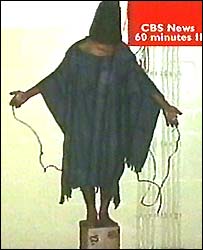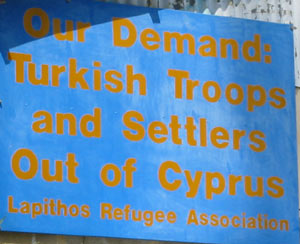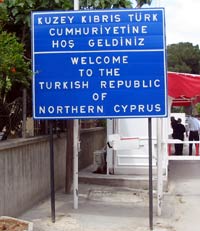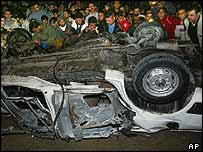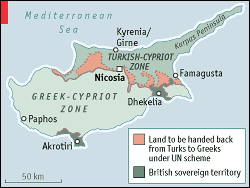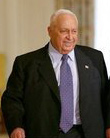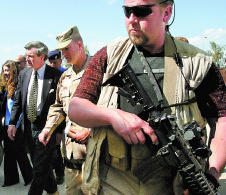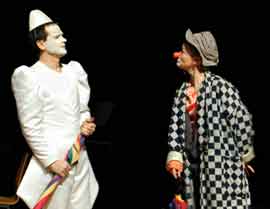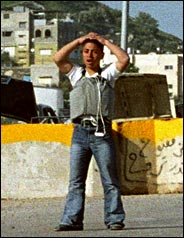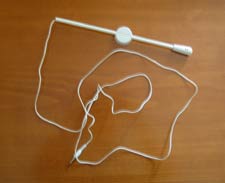
In what’s becoming a recurring theme in my despatches from the field, the News Gods have once again unleashed their wrath on me. Either that or I’m just a crap field producer. Most probably the latter.
The Today programme, as UK readers will know, is the most prestigious and listened to programme on BBC radio. Every morning, millions of people from diplomats to dustmen tune in. The programme sets the news agenda for the day. It’s our flagship outlet -- and every correspondent wants to get on it as often as possible. Therefore when my proposal to do a report for Today on how millions of Euros of EU money will benefit the Turkish Cypriot north was accepted we (myself and Europe Correspondent Chris Morris) knew we had to do a decent job.
We crossed the Green Line into the self-declared Turkish Republic of Northern Cyprus, hooked up with our local fixer, and set to work.
We wanted to talk to a Turkish Cypriot businessman and ask him to explain the problems he faced doing business in the TRNC – no direct flights to anywhere but Turkey, trade embargoes etc. Our fixer, Serkan, did the business and drove us to the offices of one of northern Cyprus’s most prosperous entrepreneurs.
We chatted to him, told him what we wanted to talk about, and I set up my equipment to record an interview.
I reached into my bag of recording kit and pulled out a minidisk machine and leads. I looked for my microphone. Then I looked again.
Then panic set in.
I’d crossed over from Greek Cyprus to Turkish Cyprus, negotiating checkpoints on either side of the Green Line….but I’d left my microphone in the Nicosia Hilton. No microphone = no Today programme package = professional humiliation.
To dash all the way back to the hotel, through the checkpoints twice, would have taken a couple of hours – and we just didn’t have the time.
We explained the predicament to our interviewee. He rummaged around in a cupboard and pulled out a microphone you’d attach to a computer. The microphone I normally use costs several hundred quid. It can pick up everything from a subsonic rumble to a high pitched squeak. He was offering me a piece of plastic crap worth about 50p. It was all we had, though, so I gave it a whirl. Not only did it work….it actually worked rather well.
Once we’d done the interview we nipped back to the government press centre to see if we could borrow a mic from one of the other international hacks working there.
I came across the microphone used to relay press conferences by senior Turkish Cypriot politicians. No one was looking. I grabbed it and stuffed it in my pocket.
I now had two microphones to choose from – the mickey mouse computer one and the stolen government one. Both were totally inadequate – but they were all I had. I pressed on.
Switching between the two we managed to record another handful of interviews. The quality wasn’t outstanding but it was passable. Before heading back across the Green Line I dropped the purloined microphone back at the government press office. No one seemed to have noticed it was missing.
With a bit of digital jiggery-pokery on the laptop I was able to turn the interviews into a half decent radio package. The News Gods had smiled on me again.
Here’s the finished product:
Audioblog: Today Programme Northern Cyprus Package (.wma) -- 533Kb download
When you listen to it, bear in mind that a piece for the BBC’s flagship radio news programme was put together with two of the shittiest microphones known to broadcasting. No one is more surprised than me.
